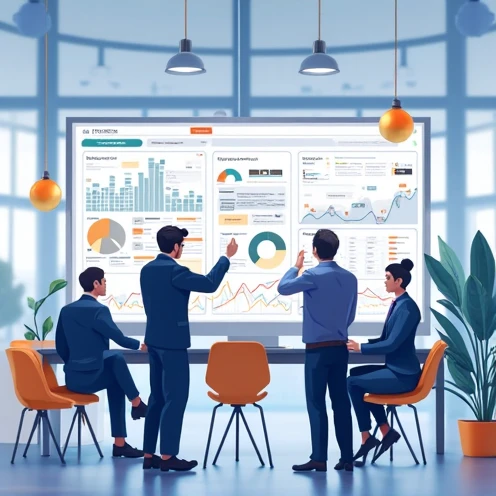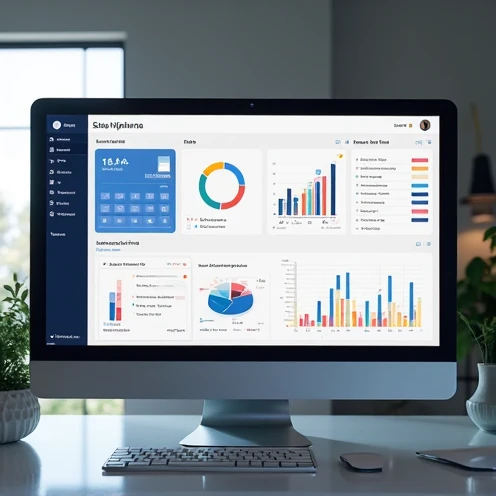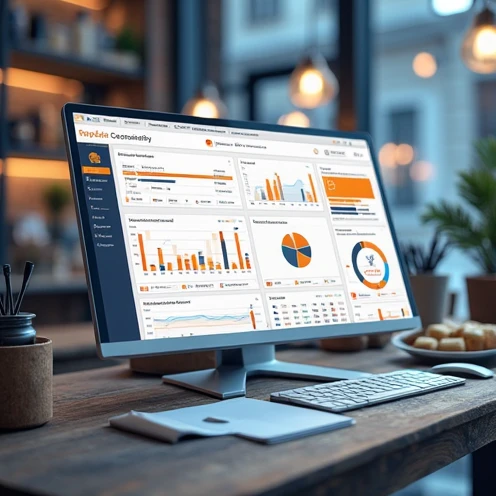What Is ERP CRM and Why It Matters for Your Business
If you’re aiming to scale your business operations, it’s important to understand what ERP CRM actually means. ERP stands for Enterprise Resource Planning, while CRM stands for Customer Relationship Management. Separately, each serves distinct purposes: ERP streamlines internal processes like finance, inventory, and HR, whereas CRM enhances your customer interactions, sales pipelines, and support.
Iklan Google AdSense
Now, imagine these two powerful tools working together. That’s where ERP CRM integration comes in. It bridges the internal and external aspects of your operations, enabling real-time communication between departments and creating a single source of truth across your company. This synergy is essential for companies looking to improve workflow, cut costs, and stay competitive in today’s data-driven market.
The Core Benefits of ERP CRM Integration
Businesses that use ERP platforms experience a notable improvement in both operational efficiency and customer satisfaction. With everything connected—from marketing campaigns to order fulfillment—companies are able to deliver a more cohesive and responsive experience to their clients.
Iklan Google AdSense
Moreover, ERP provides complete visibility across the business. Whether you’re managing leads or reconciling accounts, your team has access to accurate, real-time data. That kind of insight can lead to better decision-making and long-term growth.
Improving the Customer Experience End-to-End
A CRM system helps you know your customer. But what happens after a sale? That’s where ERP comes in. When these systems work in tandem, the result is seamless service throughout the customer journey—from prospecting to post-sale support.
For example, if a customer wants to change an order or inquire about delivery, the customer support team can instantly check inventory levels, shipping status, and billing records, all without making separate requests to the warehouse or finance teams.
Turning Data into Sales Power
Sales teams need more than contact lists. They need context. ERP systems offer a panoramic view of each customer’s journey. This includes purchase history, service interactions, payment behavior, and product preferences.
With such rich data, sales reps can target offers more effectively, personalize their communication, and close deals faster. In the long run, this leads to stronger relationships and increased lifetime value per customer.
Boosting Team Productivity with Automation
One of the most powerful aspects of ERP systems is automation. Rather than spending time on repetitive tasks like data entry or manual invoicing, teams can automate these workflows. This frees them to focus on high-impact work.
From automatically assigning leads to sales reps, to generating real-time performance reports, automation enhances both accuracy and speed. It also reduces human error, ensuring consistency across every department.
Eliminating Departmental Silos
Traditionally, departments like sales, finance, and marketing work in isolation. ERP CRM platforms break down those walls. When everyone works from the same system, collaboration improves instantly.
Marketing teams can tailor campaigns based on sales data. Finance can approve credit terms with visibility into customer history. And customer service can handle inquiries with full knowledge of a client’s transactions. This unified system reduces friction and boosts agility.
Customizable for Any Industry or Workflow
No two businesses are alike. That’s why modern ERP CRM systems offer high levels of customization. Whether you’re a retail brand, a manufacturer, or a service provider, these tools can be tailored to meet your specific needs.
Modules can be added or removed based on business size, industry, and operational complexity. And as your business grows, the system scales with you. This means you won’t outgrow the software anytime soon, making ERP CRM a long-term strategic asset.
Protecting Your Data with Enterprise-Grade Security
Data security is no longer optional. ERP CRM systems typically come with advanced security features such as multi-factor authentication, role-based access, and encryption.
Additionally, they help ensure compliance with data regulations like GDPR or HIPAA. You can manage consent records, control who sees sensitive information, and generate audit logs to meet legal requirements. Peace of mind is built into the system.
Key Features to Look For in an ERP CRM Platform
Not all systems are created equal. When selecting an ERP CRM solution, it’s essential to look beyond basic features. Consider how the platform integrates with your existing tools, how user-friendly it is, and how easily it can be customized.
Cloud-based solutions offer greater flexibility and lower upfront costs. Also, look for mobile accessibility so teams can work on the go. Don’t forget to evaluate vendor support, training materials, and update frequency.
Overcoming Common ERP CRM Implementation Challenges
Transitioning to an ERP CRM platform may feel overwhelming. Challenges like employee resistance, high implementation costs, or data migration issues often arise. However, with a structured approach, these can be addressed effectively.
Begin with a clear roadmap and secure executive buy-in. Involve key team members early in the process. Provide hands-on training and communicate the value of the system. Finally, test before launch to avoid data integrity issues or system conflicts.
The Future of ERP CRM: What’s Coming Next
Technology doesn’t stand still—and neither does ERP CRM. New trends like Artificial Intelligence (AI), Machine Learning (ML), and Robotic Process Automation (RPA) are shaping the future of these systems.
Imagine a CRM that recommends next-best actions or an ERP that adjusts inventory in real-time based on predictive analytics. These smart systems are no longer dreams—they are fast becoming standard. By investing in ERP CRM now, your business stays ahead of the curve.
ERP CRM Is More Than Software—It’s a Strategy
ERP CRM is more than a tool—it’s a strategy for growth. When implemented effectively, it helps businesses stay agile, customer-focused, and data-driven. Whether you’re a small startup or a large enterprise, this integration lays the groundwork for sustainable success.
Think of ERP CRM as the central nervous system of your organization. It connects every touchpoint, from backend operations to customer interactions. And in today’s hyper-connected world, that integration is not just useful—it’s essential.
Iklan Bersponsor Google






